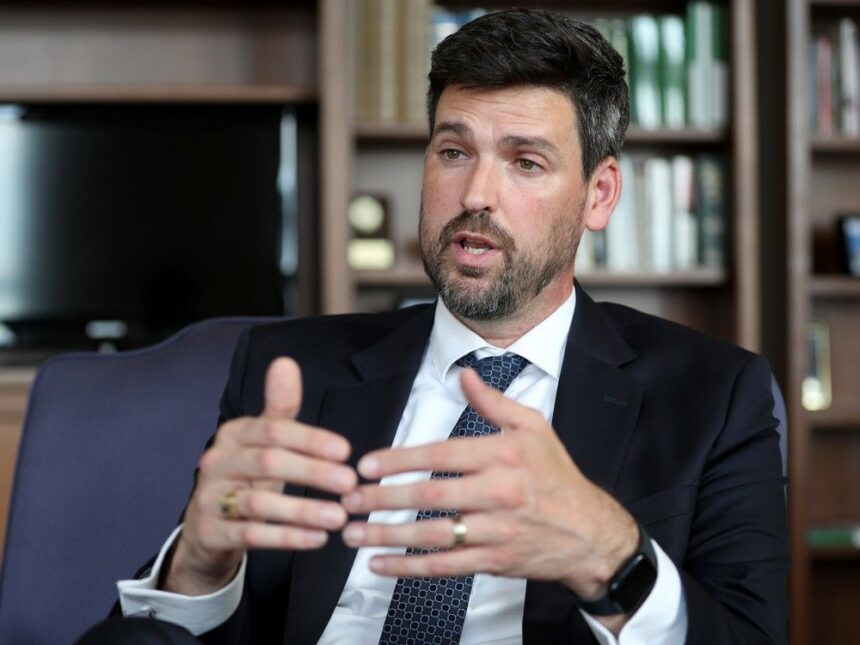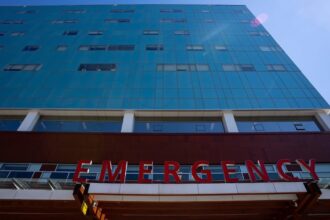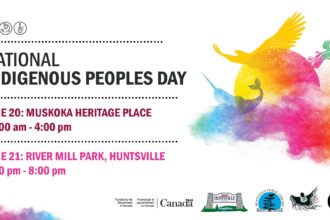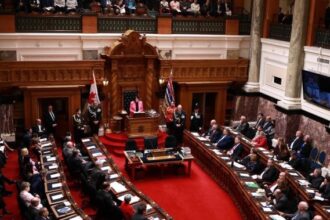In the shadow of escalating protests that have disrupted access to schools and places of worship across Ottawa, Public Safety Minister Dominic Fraser has unveiled plans for sweeping new legislation aimed at protecting these essential community spaces. The announcement comes as tensions rise over demonstrations targeting religious facilities and educational institutions—sites that Fraser describes as “sacred spaces” requiring special protection under Canadian law.
“What we’ve seen in recent months is deeply troubling,” Fraser told reporters during a press conference in Ottawa yesterday. “Canadians have the fundamental right to practice their faith without intimidation and children deserve to attend school without navigating through hostile crowds. These aren’t negotiable principles in our democracy.”
The proposed legislation would amend the Criminal Code to create specific offenses for blocking access to schools, hospitals, and places of worship—a response to what many community leaders have described as increasingly aggressive protest tactics. Current laws have proven inadequate in addressing these targeted disruptions, according to legal experts consulted by the government.
Fraser emphasized that the legislation strikes a deliberate balance between protecting democratic freedoms and ensuring community safety. “The right to protest is fundamental in Canada, but that right cannot extend to preventing children from accessing education or believers from practicing their faith,” he stated. “We’re drawing reasonable lines while preserving free expression.”
The minister’s announcement follows months of escalating tensions in Ottawa, where protests related to the Israel-Hamas conflict have repeatedly targeted synagogues and Jewish schools. Similar disruptions have affected other religious communities across the country, creating what Fraser described as “an atmosphere of intimidation” that the government can no longer ignore.
Recent Canada News reports indicate that school administrators have faced increasing difficulties maintaining safe learning environments amid these demonstrations. The Ottawa-Carleton District School Board reported multiple incidents where students were verbally harassed while attempting to enter school grounds during protests.
Legal experts from the University of Ottawa’s Faculty of Law have noted that while the Criminal Code already contains provisions against intimidation, the proposed amendments would create clearer pathways for law enforcement to intervene when access is physically blocked. Professor Catherine Morris, a constitutional law specialist, told CO24: “The current legal framework has gaps when it comes to protecting access to these specific institutions. This legislation appears designed to address those gaps while remaining constitutionally sound.”
Opposition parties have offered mixed reactions to the announcement. Conservative critics questioned the need for new legislation, suggesting stronger enforcement of existing laws would suffice, while NDP representatives expressed cautious support while emphasizing the importance of protecting legitimate protest rights.
Faith leaders across denominations have largely welcomed the proposed measures. Rabbi David Cohen of Ottawa’s Beth Israel Congregation noted, “People should be able to pray in peace without facing harassment. This isn’t about silencing political speech—it’s about protecting fundamental freedoms that benefit all Canadians.”
The legislation is expected to be introduced in Parliament within weeks, with Fraser indicating the government hopes to secure multi-party support for expedited passage. Implementation would include coordination with provincial and municipal authorities to ensure consistent enforcement across jurisdictions.
As political debates intensify around these proposed changes, a fundamental question emerges for Canadian society: How do we balance our cherished traditions of free expression with the equally important right of citizens to access essential services and spaces without intimidation or obstruction?










